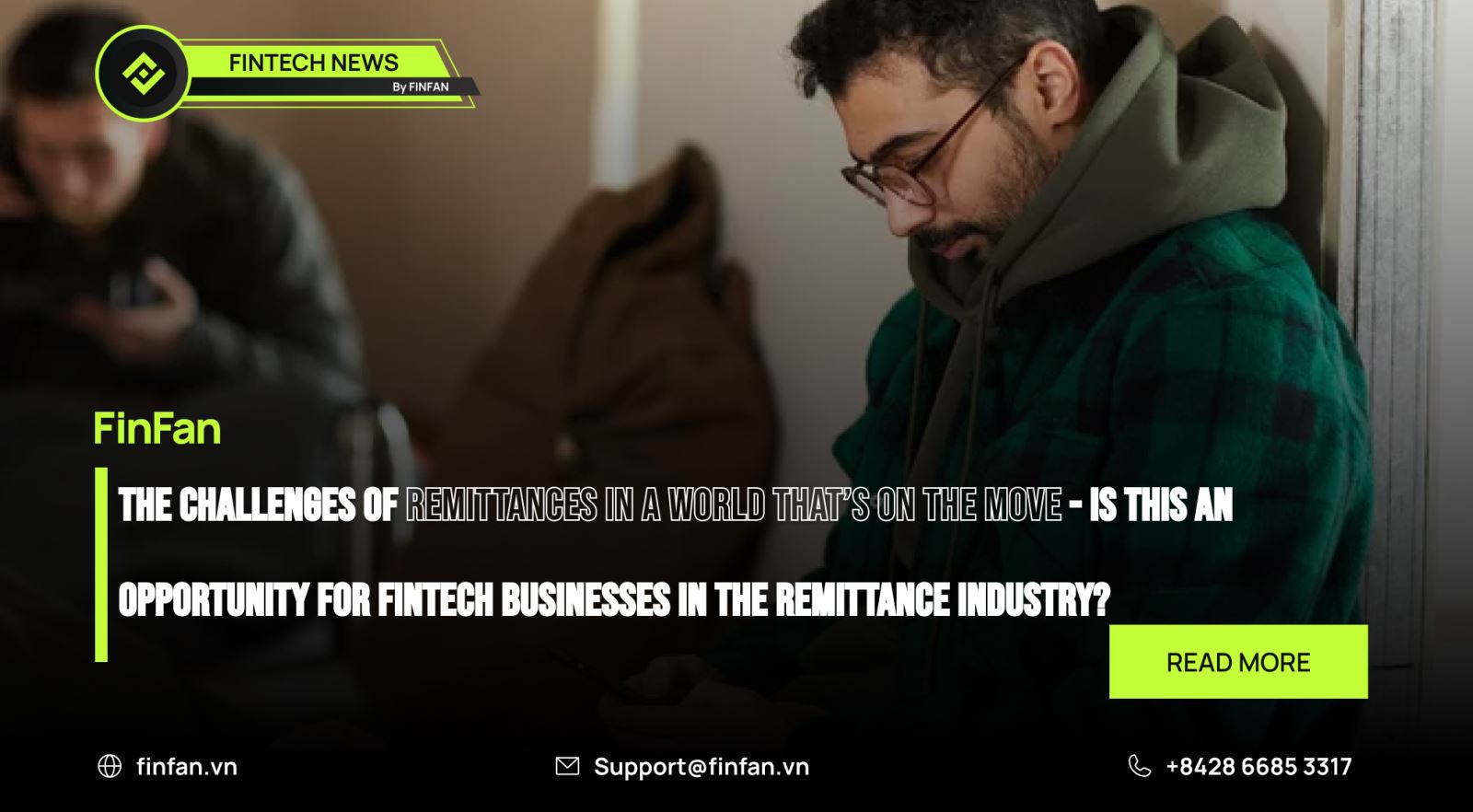The challenges of remittances in a world that’s on the move - Is this an opportunity for fintech businesses in the remittance industry?

In 2022, the world began a crisis that has lasted until now (starting with the war between Russia and Ukraine). Up to now, everything has gradually stabilized and gone into orbit.
However, in some areas of the world, civil war continues to take place, forcing people in these countries to cross the border to Europe to live and work and at the same time send money back to their families.
Is this an opportunity or challenge for fintech companies specializing in remittances to develop? Let's find out with FinFan in the following article.
Migration brings difficulty in transferring remittances.
Although the demand for remittances will increase, immigrants will face some problems in transferring remittances.
- No payment infrastructure for receiving remittances in the refugees and asylum seekers’ nations.
Most refugees come from countries at war such as Taliban, Afghanistan, Nigeria, etc. The war devastated and destroyed the country's payment system and infrastructure.
Therefore, to be able to transfer money back home, they must rely on expensive intermediary services or get scammed. This situation is often like Vietnamese refugees in the US in the 70s and 80s of the last centuries and they also had difficulty transferring remittances back to Vietnam.
- The speed at which remittances move.
People in these countries facing war are often greatly affected by hunger and lack of necessities and they need money quickly and almost immediately to maintain daily life.
- The cost and fee are also problems with remittances to these countries.
Because of the war and famine, remittance fees and total remittance costs can be a problem for people in these countries.
- The fourth thing really comes down to convenience.
When they want things to be faster and reach their loved ones directly, what these refugees need is a service that is as convenient as possible (they don't even have a laptop or PC), there is You can support them with just a few simple steps on your smartphone.
According to the Global Head of the Wise Platform Abid Mumtaz in an interview with Fintech Magazine, "They want that to be as easy as possible, as convenient as possible, within a few steps or a few clicks – just as we're seeing across most of the banking and financial journeys we're seeing today."
Is that an opportunity or challenge for a remittance company?
Progress and updates in the field of remittances
With the above 4 factors that the relatives of refugees want, remittance transfer companies absolutely have opportunities to expand their transaction market.
As mentioned in the articles about send money to Vietnam from the US, India, Korea, Australia, Germany, Japan, etc., companies that handle remittances are increasingly developing and improving their products completely. The most user-friendly and convenient for its users.
Even at the present time, some companies in this field have been able to develop their money transfer system to the end user in the fastest way (sometimes just a few clicks or a swipe of the phone).
How can they do the above things more easily?
The reason remittance companies can accomplish the above problems is because they are closely linked together and support each other to improve services. Just like FinFan cooperates with remittance service companies to support them in providing the best solutions for businesses.
Read more:
. International Day of Family Remittances - The importance of the digitalization of remittances
. Remitly cooperates with FinFan: Money Real Time On The Go
. How to send money from the United States to Vietnam by using some FinFan’s partners – SendWave
Will war and damage in the above countries be a barrier?
The war and its destruction of payment infrastructure not only did not destroy or cause the sales of remittance companies to decline, on the contrary, but the valuation of this segment also increased every year - up to 2030 could reach US$107.8bn according to Wise's Abid Mumtaz's prediction.
Also according to this man's opinion, “Many developing countries lack the infrastructure necessary to support modern financial services, including reliable telecommunications networks, banking infrastructure, and secure payment systems. Some developing countries have weak regulatory frameworks, which can lead to a lack of consumer protection and low levels of trust in financial institutions”.
In short, we are living in a flat world, where all information and data are transmitted to each other with just a few clicks.
Further in the next developments of technology and the internet, senders and receivers even control their own exchange rates and can create a transaction not only in fiat currency but also in some other types of cryptocurrencies.
Transferring remittances is no longer as difficult as the situation of Vietnamese refugees in the US in the 70s and 80s of the last century when there was no internet yet. Remittance companies can completely expand their market share and increase sales based on new advances in modern science and technology.